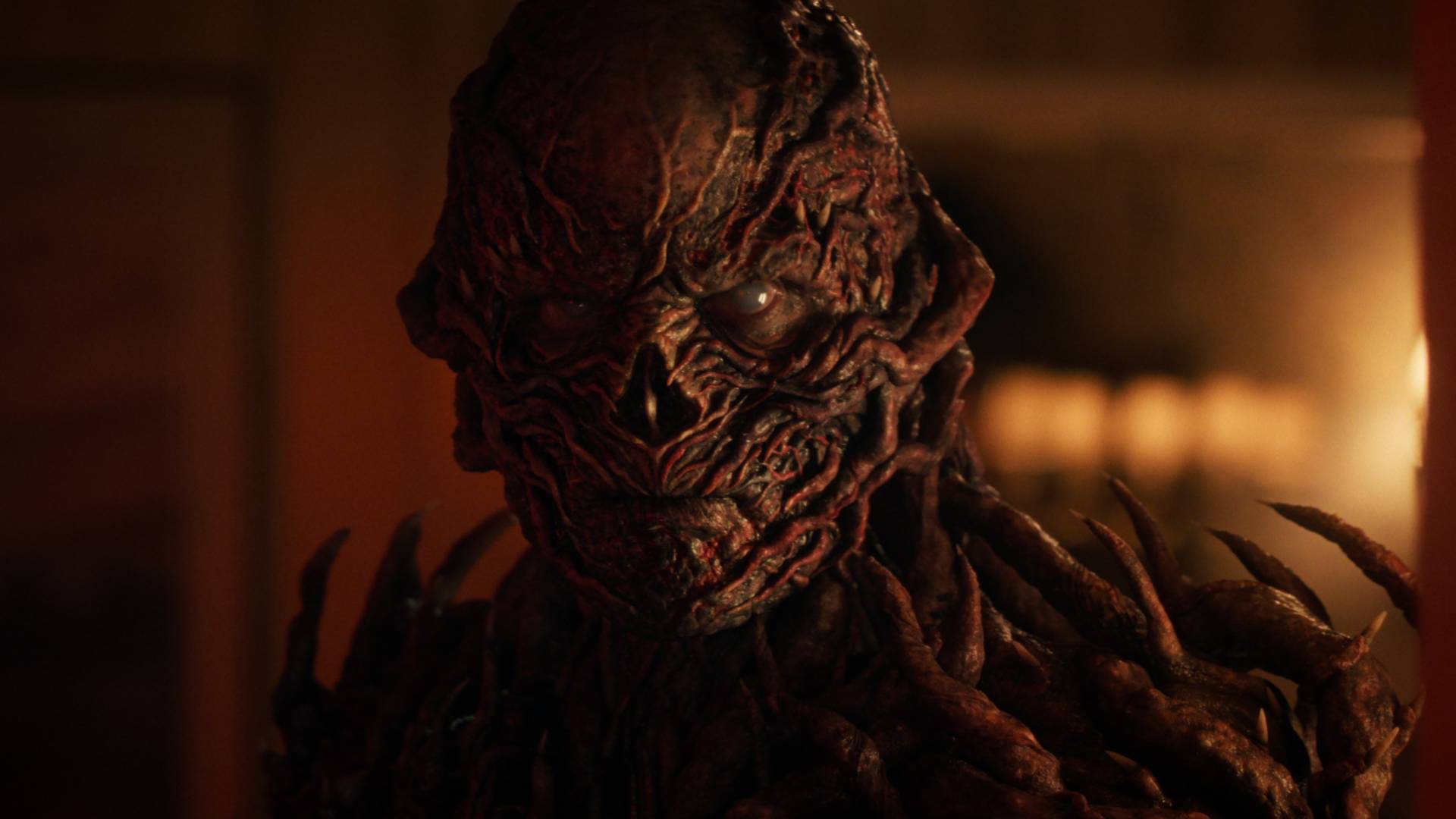Bioshock Infinite: 8 lessons it can teach all other sequels
How to be a successful successor
Infinite potential
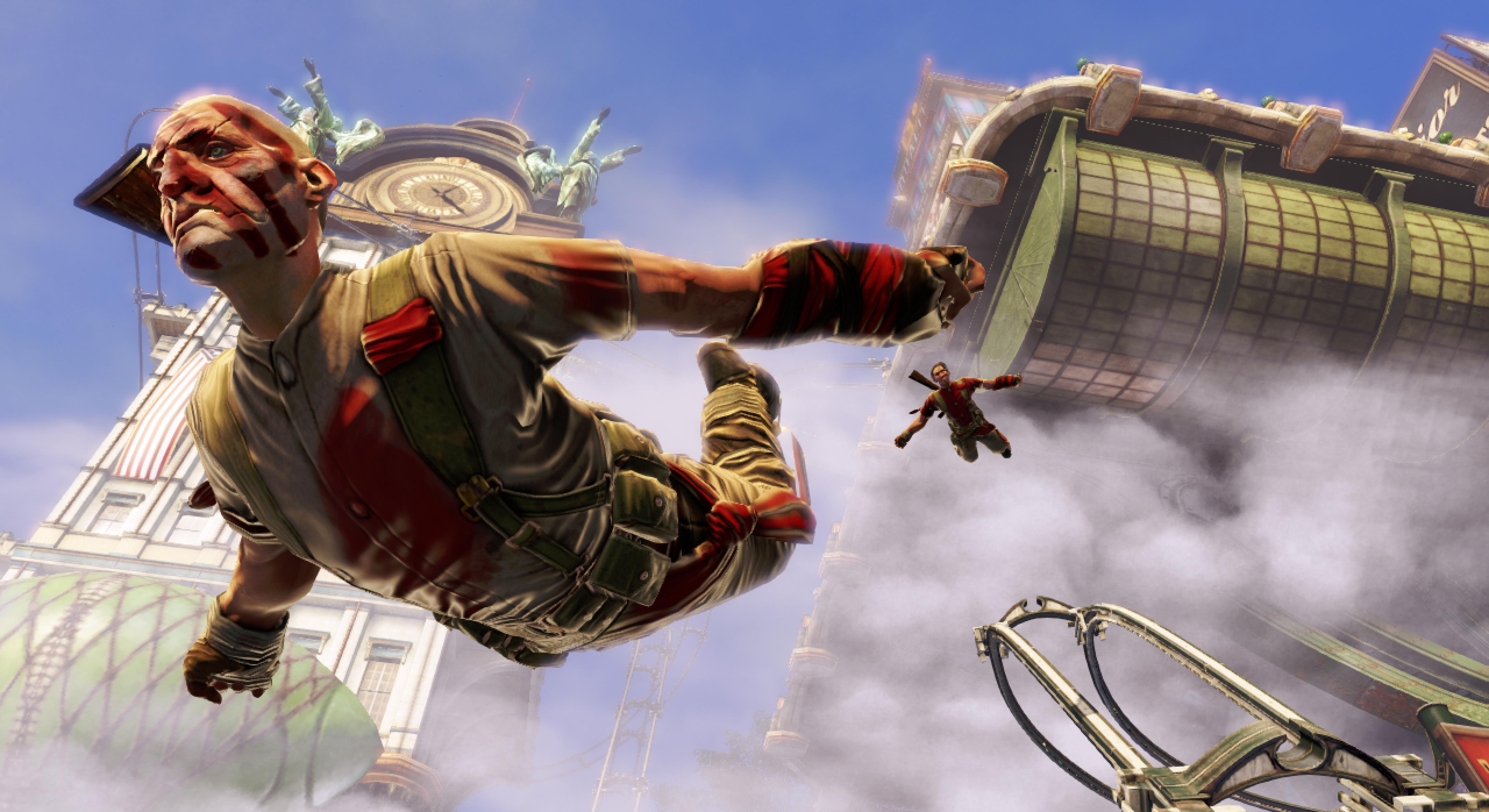
BioShock Infinite is brilliant, not only as a sequel but as a game in its own right. In actual fact, perhaps ironically, it's the latter element that makes it so good as a sequel in the first place.
The game isn't just another case of throwing old production assets into a blender and sticking a new number on whatever comes out. It's proof that despite their oft-maligned nature, video game sequels can be just as exciting and stimulating as an original stand-alone game. Perhaps more so if presented right. They just need to understand how best to both play to and subvert their nature as follow-ups. As a practical example to others, here are BioShock Infinite's eight big lessons.
We've tried to remain spoiler-free, but the sensitive might want to skip page nine just to be safe.
Take your time
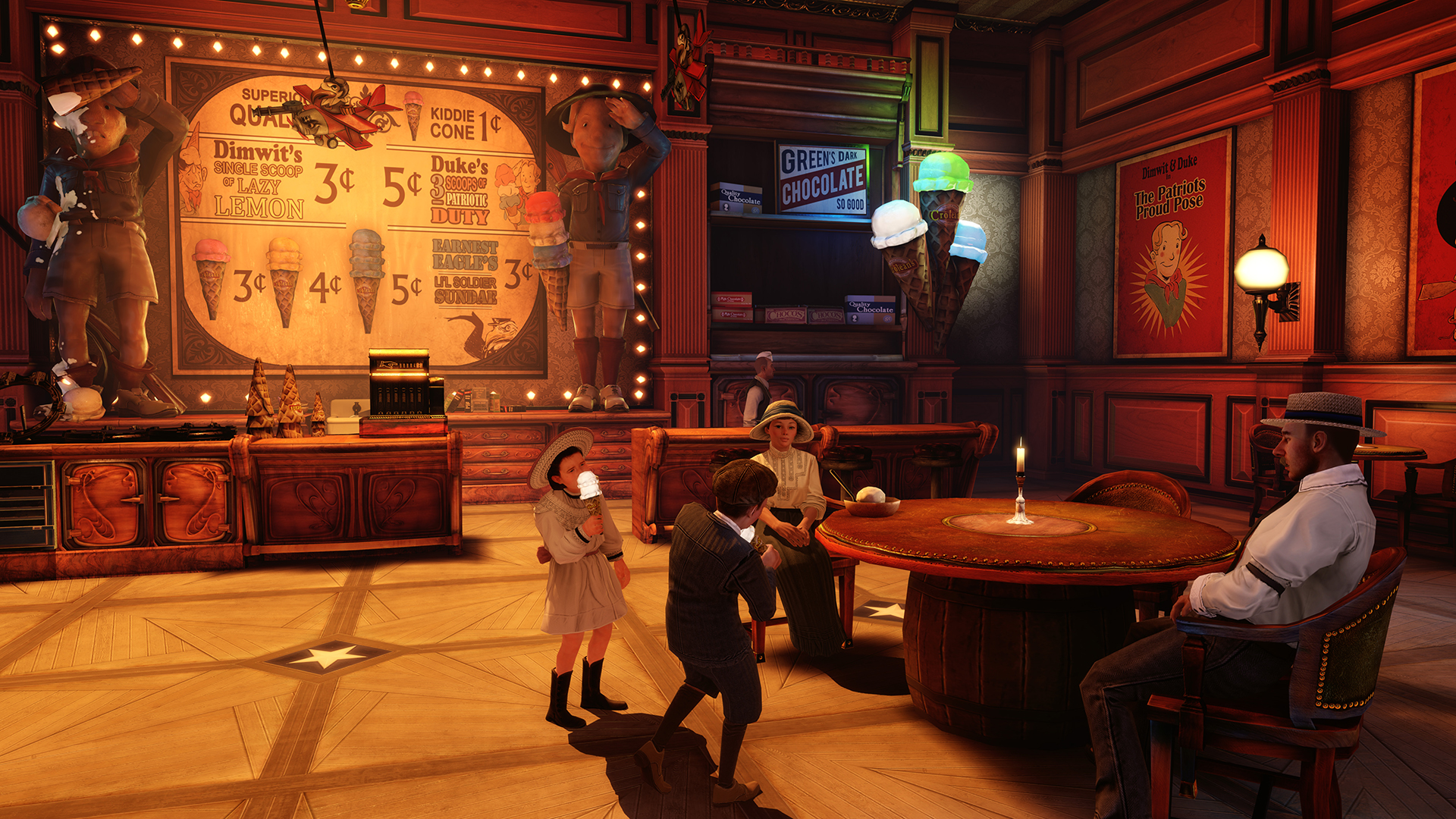
Production line sequels only ever feel like production line sequels. With release dates for franchise entries often set over a year in advance, theres very little time to genuinely re-envision or overhaul the experience. Such initiatives are risky, and can unravel like a loosely wrapped ball of time-wool in the paws of the Grand High Kitten of Creative Endeavour. So instead of experimenting, you get your core game concept locked down before you make the first game and then you iterate and tweak that very same concept through all the sequels. Its just what you do.
You know what else is often just what you do? Running out of steam by the time your slightly bloated part three arrives, as the core gameplay model that was cool seven years ago strains under the weight of all the tacked-on bells and whistles now distorting it. A better idea? Wait a good few years between games. Give each follow-up the time and creative attention you gave the first one. The whole reason you have a sequel is that the first game did well, so respect the process that created that hit in the first place.
Because you also need to
Know that recreation equals repetition
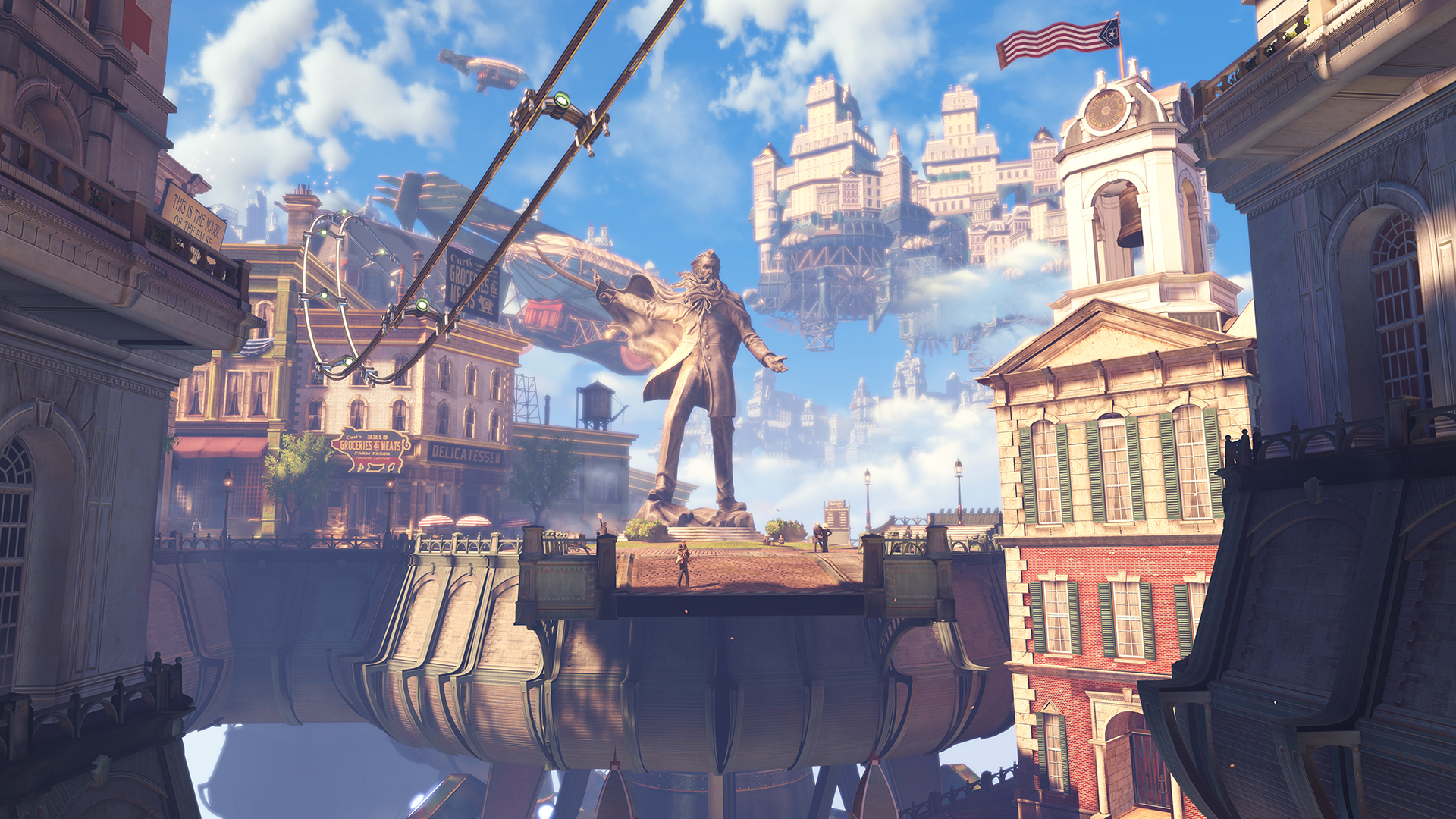
So youve created a startling, stirring work of unique genius capable of making grown men weep, birds sing, and mountains dance a sexy tango. Even more impressive, youve managed to actually make money on a project like that. Turns out that if you offer the public something new and exciting, sometimes you can actually engage them. Sometimes you can make them think and feel. Turns out that sometimes they like that.
Weekly digests, tales from the communities you love, and more
Problem is, if the unique artistic otherness of your work is what makes it a hit, you serve only to bludgeon its inherent value by making a direct follow-up. You wont build upon the original experience by repeating it, youll just dilute it. Theres a reason that Aliens took a completely different direction to Alien, and theres a reason BioShock 2 now feels like a fairly insignificant expansion pack after BioShock Infinite. People dont really want more of the same content. They want more of the same feeling that said content gave them the first time. And you can only serve that up by delivering a brand-new first time.
Throw things away. No comfort blankets allowed
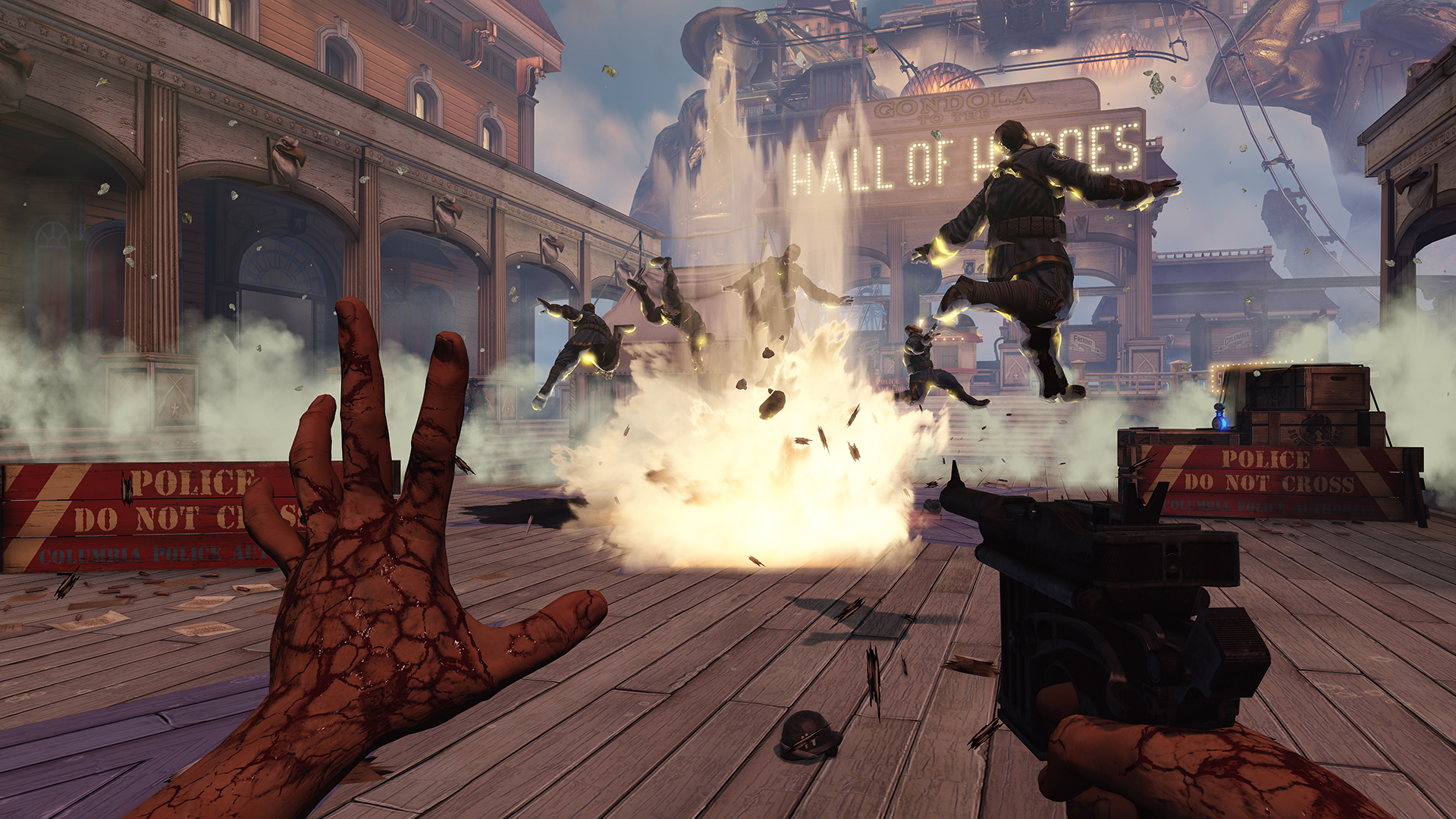
So youve decided to preserve the spirit of what made your first game great without performing a retread. And youre going to give your sequel the creative care you gave the franchise starter. Good. Next, you need to make sure youre not too precious about your old content.
BioShock Infinite gets this. The core values of BioShock (emergent, choice-driven combat; character customisation; emotional, philosophical story-telling) remain, but BioShock Infinite works more like a good adaptation than a sequel, maintaining the vitality of its essence by building something brand-new and exciting around it. Enemies behave very differently to how they did in BioShock. Combat is faster and much more direct, but still full of options if you explore it properly. The levelling up process is streamlined, but the practical use of earned skills operates by way of a more open and versatile system. And of course, the vast, multi-levelled environments send the freeform gameplay potential literally through the roof. Its BioShock, but its also a brand-new Irrational game, with all the potential to surprise and engage that being so entails.
Embrace your rivals (if it makes sense)
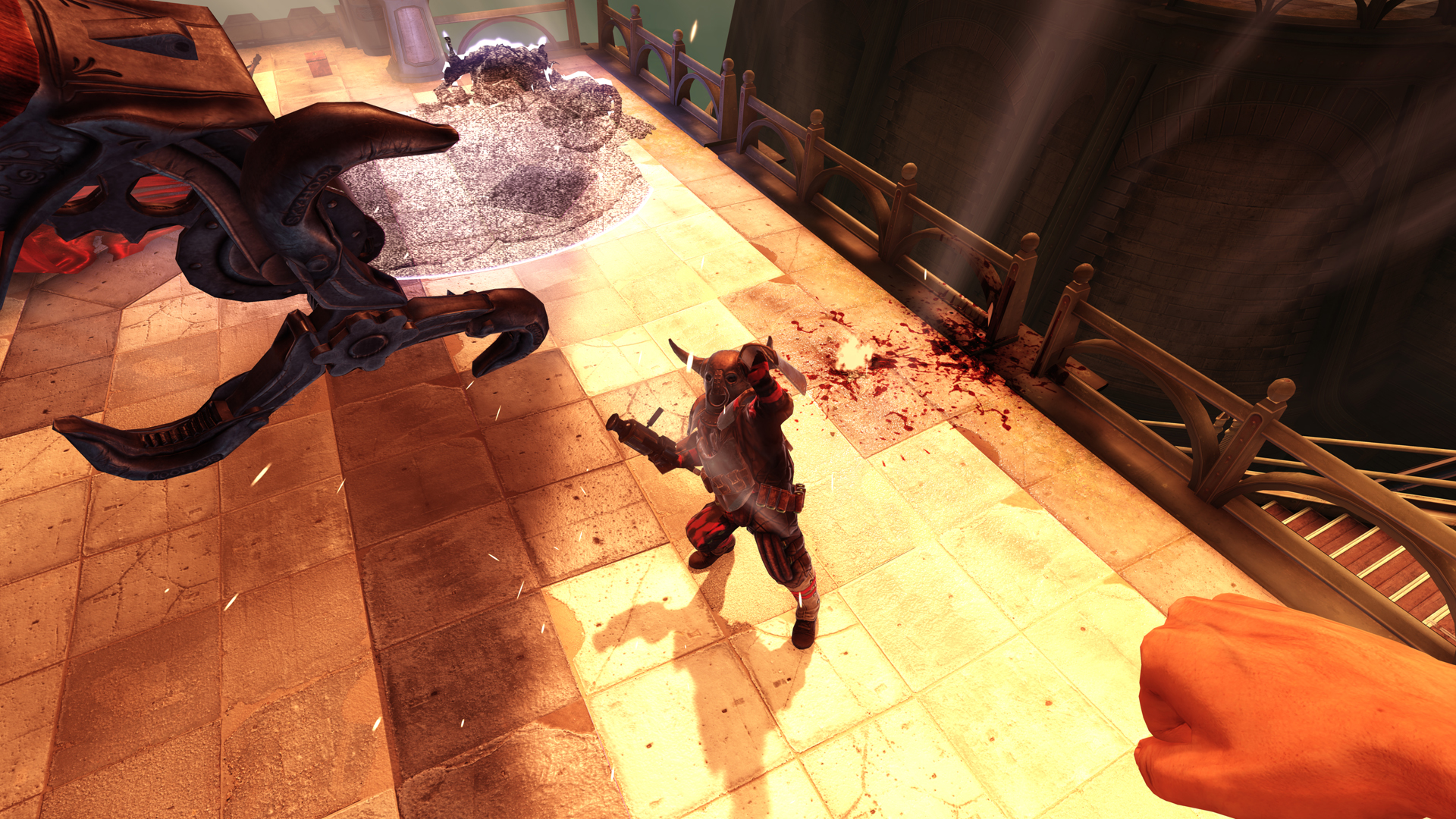
While undoubtedly an evolution of the original Bioshocks DNA, Bioshock Infinites combat is carefully spliced with highly diverse elements of this generations best action games. Theres no shame to be had in that, but nor does Bioshock Infinite cynically shout about these new additions as if theyre some kind of magical back-of-box checklist with which to conquer all demographics. Rather, Bioshock Infinite does what any smart work should in this medium of iteration. It remains open to design developments that have occurred since the last game, but it only takes inspiration from the ones which can genuinely improve what its already trying to do. And in the process, it makes those gameplay features entirely its own.
In BioShock Infinites combat, youll find elements of Halo, Half-Life, Batman: Arkham City, and Bulletstorm. But none of it feels like a rip-off. In fact none of it is even immediately apparent. Blended with the original BioShock core, all of this stuff just becomes the game design equivalent of a healthily varied gene pool. Strength through diversification, without dilution of identity.
Make a complete game, not a trilogy component
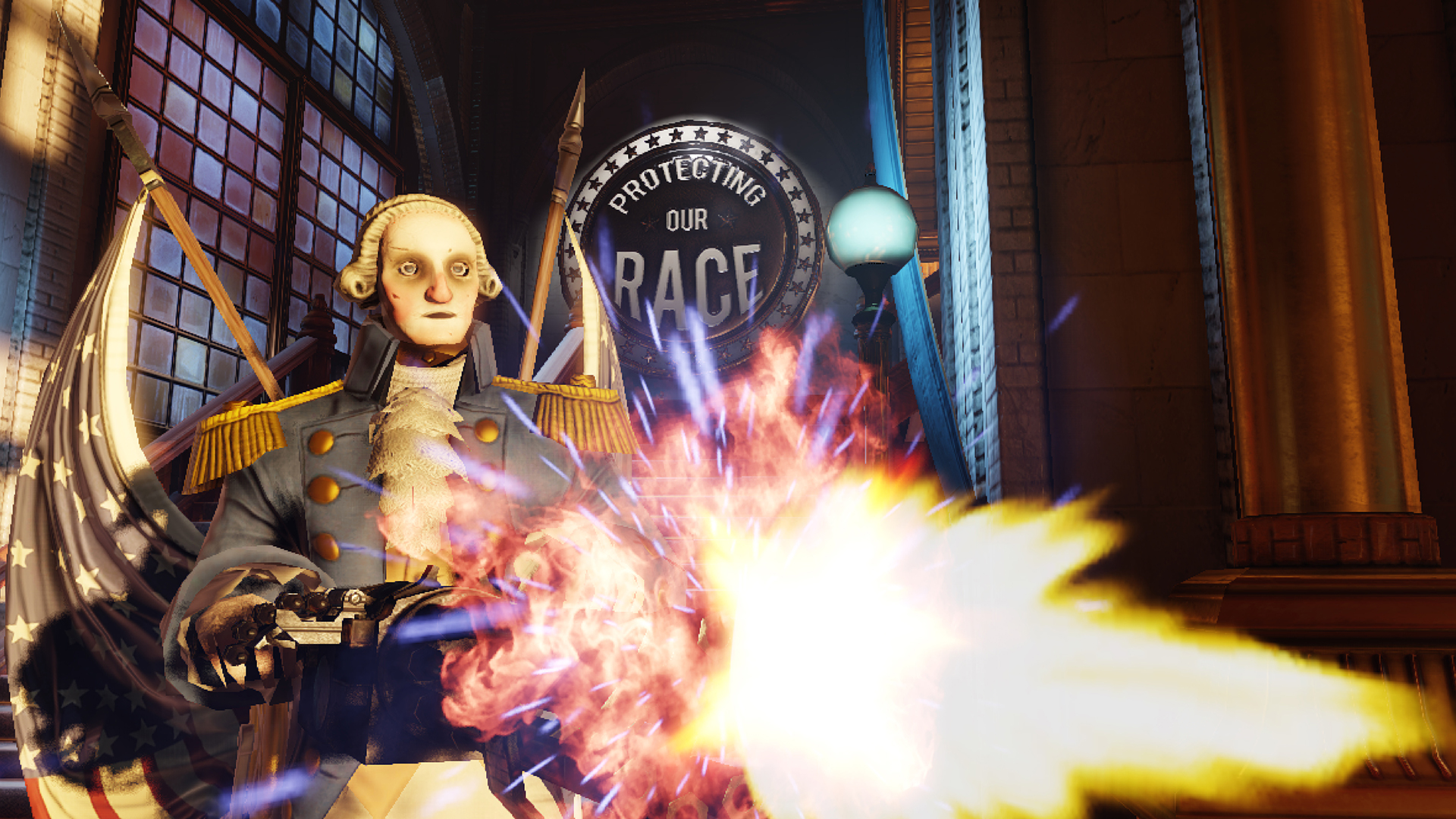
The modern predilection for creating pre-packed trilogies--whether in film or games--is a purely commercial consideration. Why invest in one work when you can get a franchise instead? A trilogy comes with all kinds of financial perks. Theres sequel hype. Theres a captive audience who will stick with you if you drag the story out. Theres bigger merchandise potential. There are the collected box-sets to release a few years down the line. But like all purely commercial decisions, theyre made without creative health in mind.
Aside from the aforementioned problem of keeping things fresh, theres also the issue of telling a story that feels real, believable, and complete. Too many games and films are so concerned with fulfilling their part in a series that they fail as works in their own right, becoming little more than a series of contrived narrative deferrals and teases. So if you're making a sequel, dont force it to rely upon being a sequel in order to be valuable. BioShock was a complete, finished story. So is BioShock Infinite. The latter game gets all the benefits of brand recognition and in-built audience, but neither games individual worth nor identity is compromised in the slightest.
Trust the player to know what they're doing
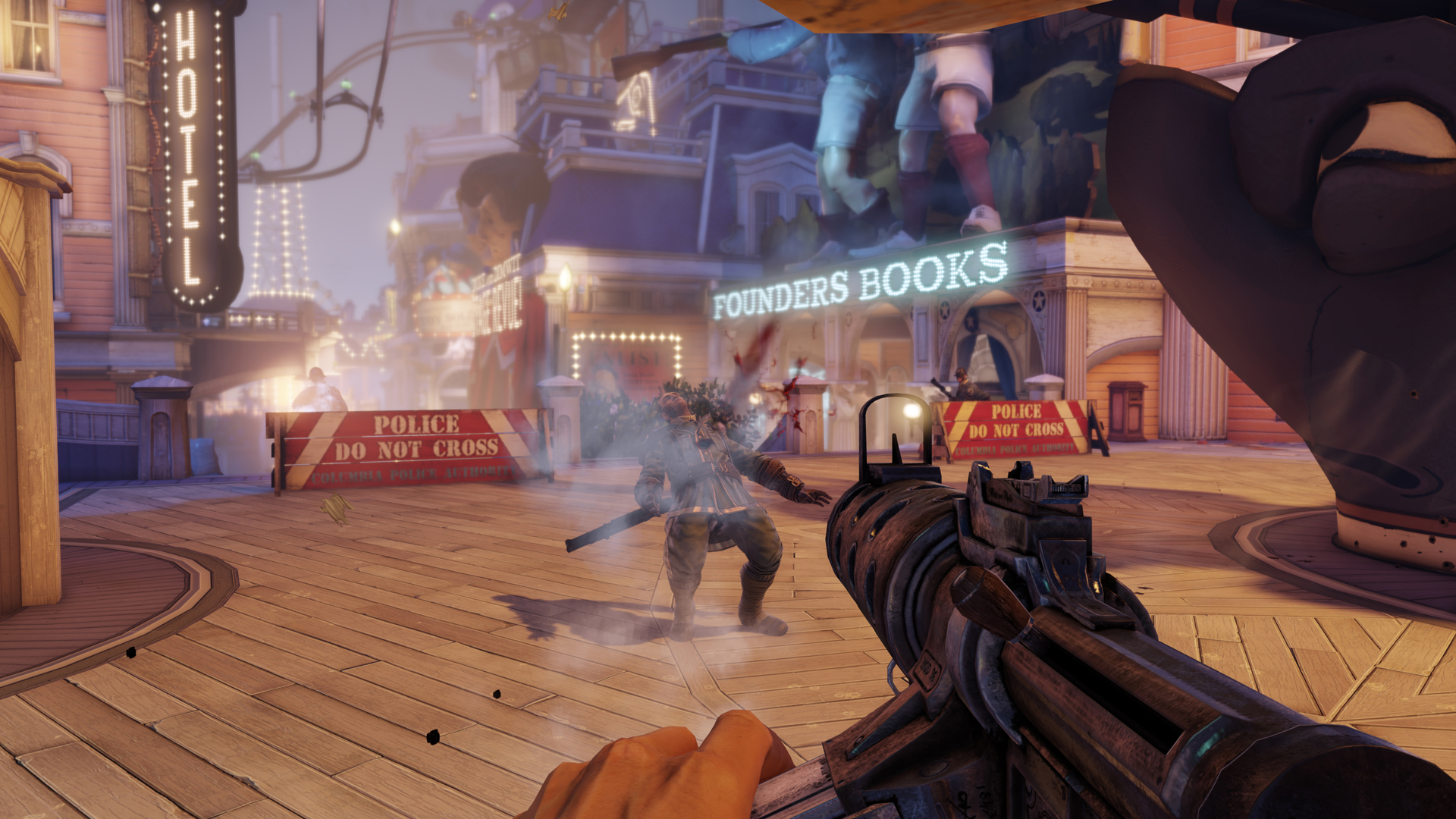
If youre a sequel to a well-known game, you can bet that you exist because the first game sold a crapload. Thus, you have a big pre-existing fanbase. Yes, sequels often sell better than their originators (unfortunate fact of the crippling human fear of anything new) but thats only because new buyers feel reassured in their purchase by the fact that a load of other people bought the first one (another unfortunate fact).
So you can make a fairly safe bet that a lot of your players already know what theyre doing, gameplay-wise. Dont treat them like beginners out of some misplaced fear of alienating new buyers. If youre a high-profile AAA sequel marketed at the buyers of high profile AAA sequels, that isnt a problem you need to address. Dont bombard your players with a dozen time-freezing tutorials. To do so kills the narrative flow of your opening hour, which should be focused on creating a sense of wonder as the player forms a bond with your world. Bioshock Infinite gets this. Theres barely a hint of hand-holding, It trusts the player to be engaged enough to learn what they have to.
Don't assume that having more features is inherently better
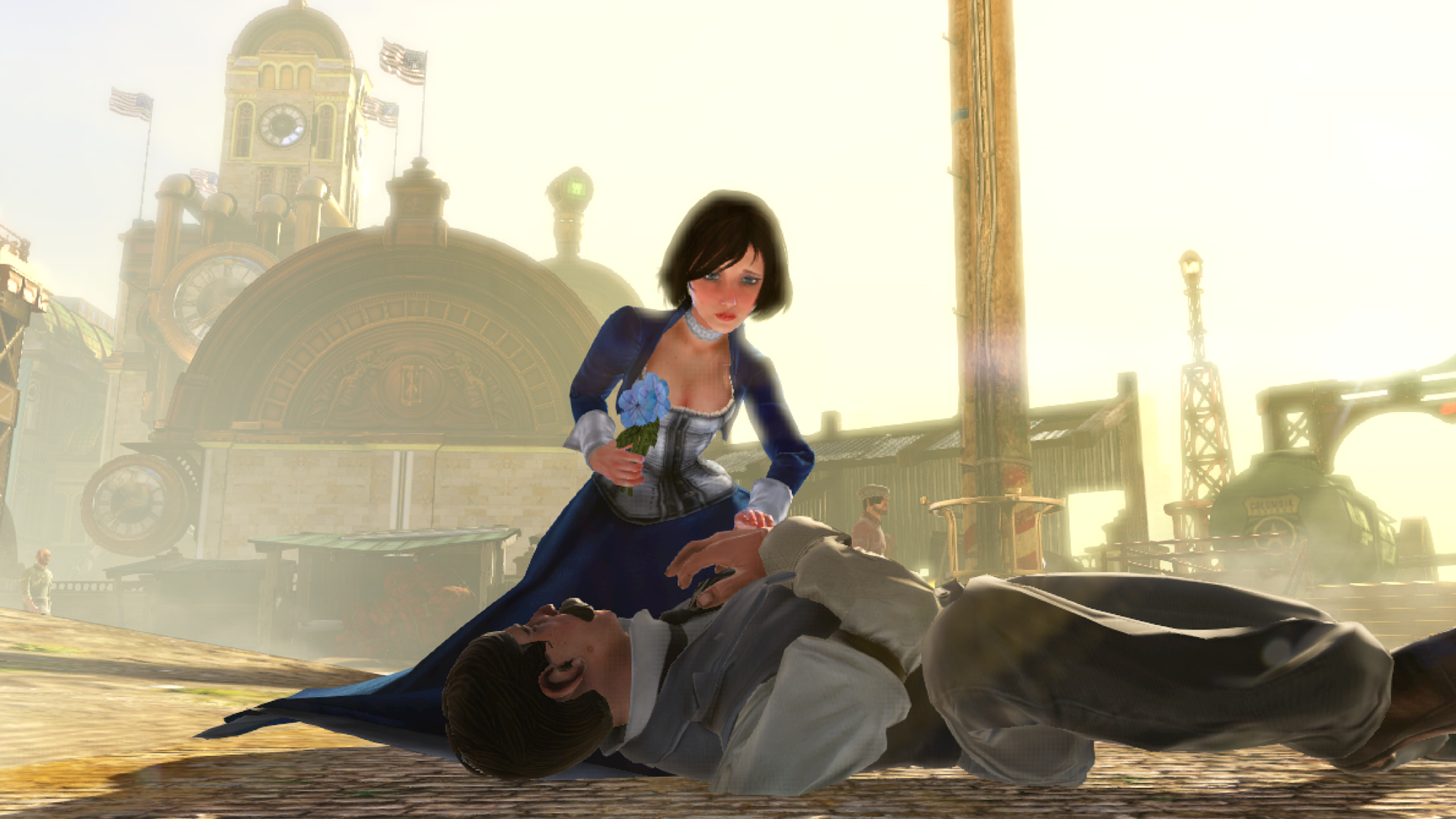
If its hard to expand upon a restrictive gameplay framework, an easy way out often seems to be to expand a games feature-set outside of the main game. Stick in a co-op mode here, a horde mode there, three or four different deathmatch setups and a time attack mode and you almost have a new game ready to go. But again, this stuff can work as a dilution. New modes and additions are only really worthwhile if they genuinely sit well with the content of your game. If they detract, distract, or simply take up development time for little extra benefit, they shouldnt be there. Hands up whos still playing BioShock 2 multiplayer. Anyone?
Irrational attempted to design a multiplyer offering for Infinite, but then dropped it when it became clear hte mode wasnt working. And the real game, the structured, narrative-driven journey Infinite was always intended to be, is surely a stronger experience for the lack of unnecessary garnish.
Be intelligent with fan service (if you use any at all)
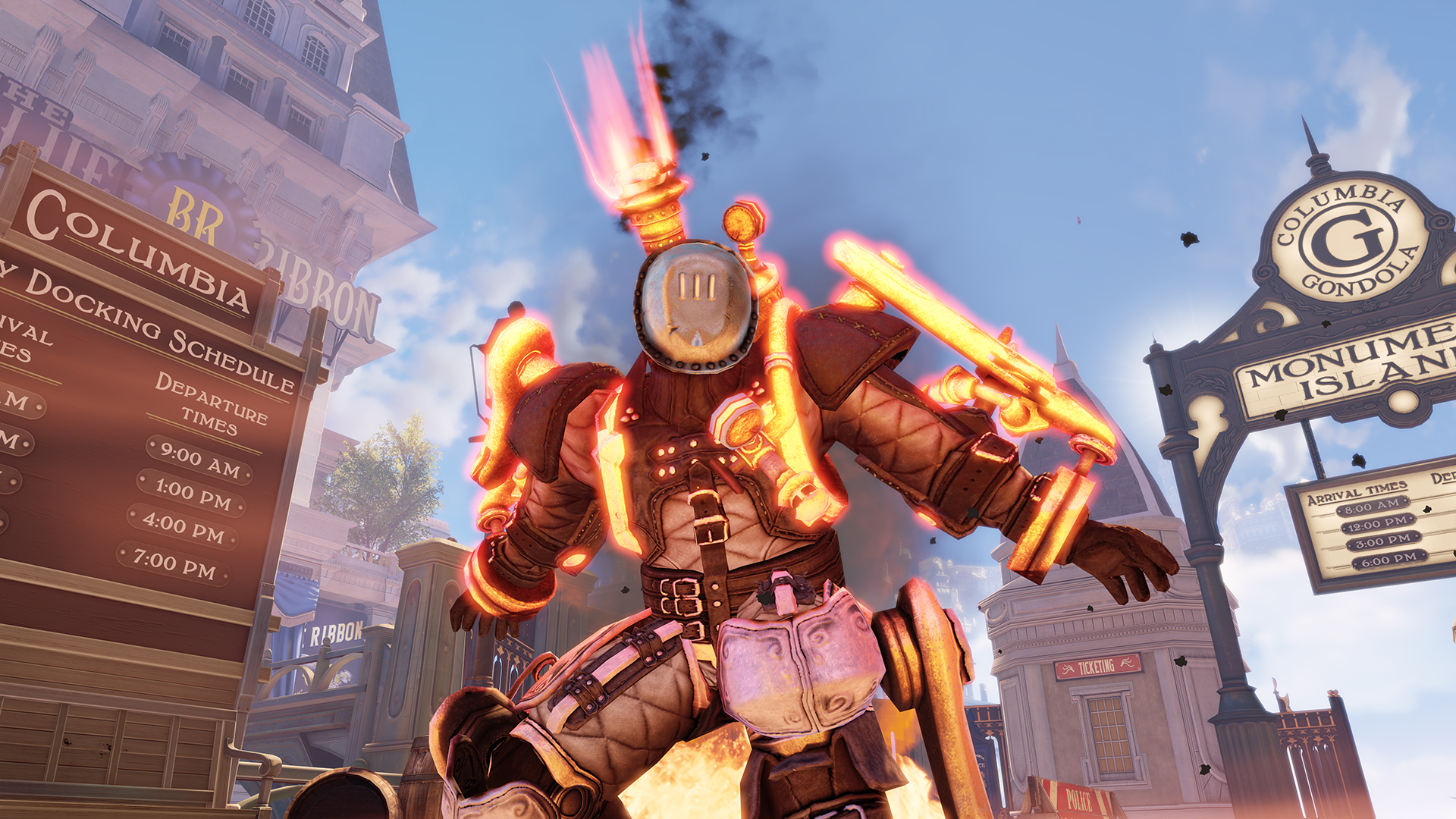
With a growing fanbase comes a growing temptation to repay affection with sneaky nods and winks. Trouble is that a sequel should be about expanding a games horizons, and excessive fan service has the opposite effect. Too much self-referential content, too many fanboy in-jokes, too much self-indulgent knitting together of plot elements and you end up with an over-contrived universe whose various connecting threads serve only to pull it ever smaller. Not to mention how fast you kill your worlds basic believability. Compare the original Star Wars trilogy to the prequels. The first is a snapshot of a huge, eclectic and exciting galactic civilisation. The latter turns Star Wars into a story taking place over about 12 square feet and involving roughly 3.9 people.
Bioshock Infinite does hint at Irrationals previous game, but it does so with intelligence. There are nods to Rapture, but theyre unobtrusive enough to be unnoticeable. Infinite respects the narrative integrity of Columbia too much to drown it with fourth-wall smashing references to another game. And when the previous games presence is felt more overtly, its no mere mindless shout-out.
Best still to come?
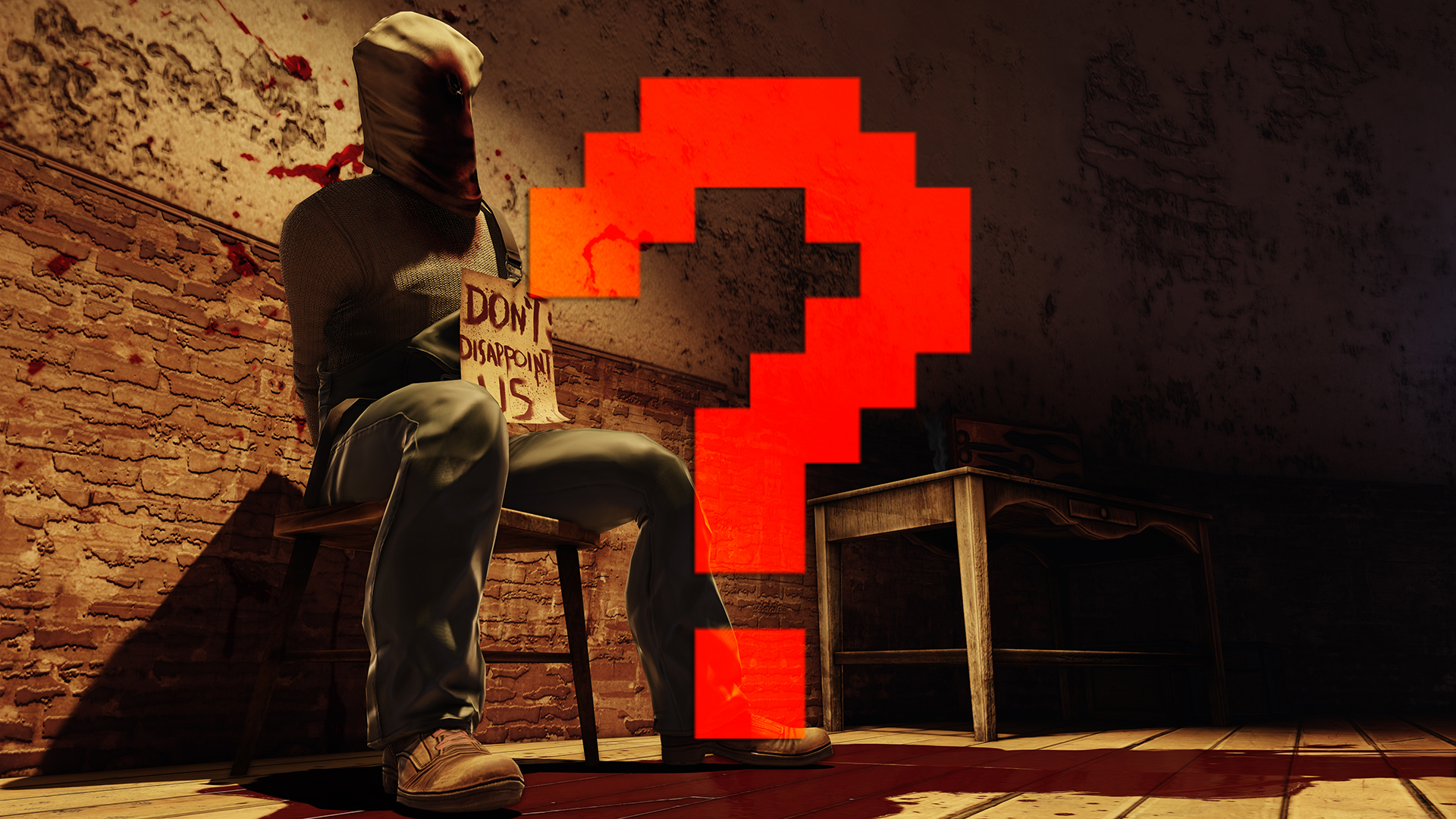
So there's our manifesto for sequeldom, as laid down by Bioshock Infinite. But are there any other rules you think are important? Any niggles or irritations that you think on-going series need to sort out? Let us know.
And while we're on a sequel kick, why not check out some related content, like The Top 7 Fantastic sequels to forgettable games, or maybe 7 games set up for sequels that never came? No, we can't think of any good reason either.



